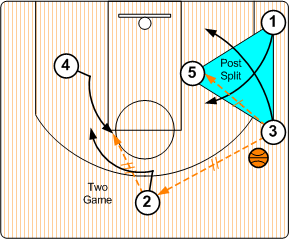Is it a great company culture or just a collection of great talent?
Lots and lots of folks like to push 'culture' as the primary driver of organizational success. I have written and presented pretty extensively on why I think that's wrong. Check any of my 'Rock-Paper-Scissors' posts in case you are interested.
One of the many reasons I get a little skeptical about this 'cult of culture' is that by its very nature culture is hard to define, to measure, and hard to draw any kind of a direct (or even a dotted) line from culture to actual results. I'm not saying it's impossible, but just really, really, tough.
But another reason why culture gets too much emphasis is how easy it can be to confuse a great culture with what is really just a collection of great talent. This challenge was discussed, I think very effectively, on of all things an NBA podcast I was listening to recently, by ESPN writer Kevin Arnovitz on the July 6 episode of The Lowe Post Podcast. Lowe and Arnovitz were discussing the recent decision by NBA star Kevin Durant to leave the Oklahoma City Thunder and join the Golden State Warriors - a team famous for their 'culture'.
Here's Arnovitz' observations on culture v. talent, then some comments from me after the quotes:
On an NBA team is culture permanent? Or is it really just transient? Is it this fancy word people like us to describe what is really just a concentration of good talent, but it seems like culture? But actually what it is is just really good basketball players there? Which is why they (the Warriors) win, it's not because they have any special connection to the community of San Francisco like people like to talk about.
Steve here - I think these observations are spot on, especially in a business setting like an NBA team where individual talent and excellence plays such a critical role in organizational success. Said a little differently, it is almost impossible to achieve the highest level of team success in the NBA without at least one superstar player, and one or two other All-star caliber players. You simply can't win without that talent level no matter how fantastic your team's culture may be.
And I know that I get a fair bit of heat from folks for trying to make these kinds of HR/talent points using sports analogies, as some folks think that an NBA team and its dynamics offer little to us to learn from, back here in the real world. But I continue to think that they are valid ones to make, especially as more and more organizations and work teams have to rely on ideas, innovation, creativity, and quite simply talent, in order to succeed in a hyper-fast, hyper-competitive world.
Ask yourself some of the questions about your organization that Arnovitz hints at.
What would really drive increased performance at your shop? More talented people? Or a somehow 'better' culture?
Which one of those levers is easier for you to influence? To measure? To replicate?
This isn't about me trying to convince you that culture = bad and talent = good.
It's about making sure we keep both in mind, (along with Strategy, if we really want to get back to my Rock-Paper-Scissors take).
When you put 4 of the best 10 or 12 best basketball players in the world on the same team you are going to win A LOT of games. If at the same time you have a great culture, you may win one two extra games.
But the great culture without the great players? Good luck in the draft lottery next year.
Have a great week!

 Steve
Steve
Reader Comments (2)
Steve, I have over past decade or so having worked in few Corporates accross industries and countries come to exactly same conclusions than you and believe the relevance of your theories, notions could definitely be further supported with Corporate examples especially more globally speaking as American Basket and Football doesn't necessarily resonate well globally.
Thanks for sharing these insights though as I have on many occasions made myself very " unpopular" pursuing similar notions as to challenging nature of influencing, impact culture and finding causal performance linkages .
Many organisations further complicate matters by wanting to link competencies, capabilities and even " character" to culture which for many talented " players" in organisations is just to confusing .
I will rather nor rant on further re the so called person culture fit dilemma which is also often equilly invalidated at great cost.
Hi Steve.. As per my opinion the culture is equally important as talent. Just to create certain boundaries where talent can grow that's the role culture plays. It creates a good impression in a mind of an individual.